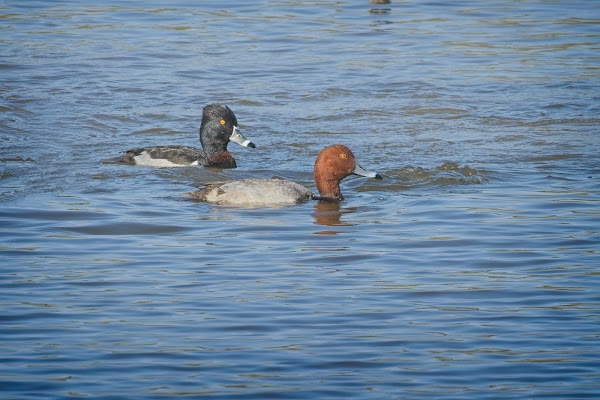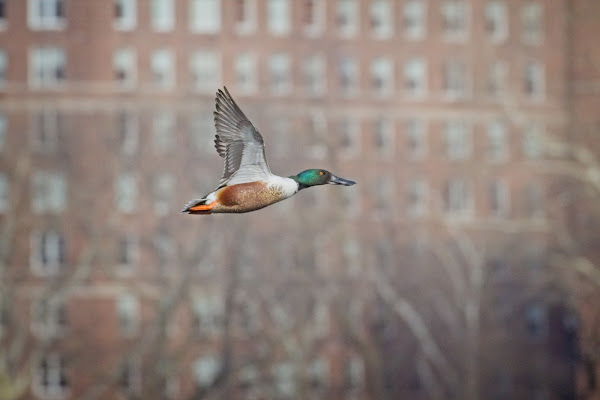First, a quick hawk update: Amelia and M2 in Tompkins Square have 3 chicks. They are currently very small and extremely hard to see, but I will have updates later.
For the best real-time look at what goes on in a hawk nest, I recommend tuning in to Cornell's Red-Tailed Hawk Cam, featuring parents Big Red and Arthur. At the time of this posting, they have one chick, one egg, and a hatch in progress.
I've not given ducks much attention on this site, but they deserve some love.
Just look at this female Ring-Necked Duck happily bathing in a wetland.
Two females and a male:
A lone male:
In this photo, a male Ring-Necked Duck tags along with a male Redhead.
This is a female Hooded Merganser showing us her wonderful hairdo:
Her male partner:
I found this Black Scoter pair (female and male) hanging around Coney Island.
Two males:
A female Surf Scoter up close:
A distant male:
American Wigeons can be found along the Brooklyn waterfront in the winter months.
Two female Common Mergansers seen in Central Park:
This is a female Red-Breasted Merganser, seen in the harbor.
A male Greater Scaup:
This is a Common Loon transitioning into its breeding plumage. Its head will eventually be all black.
A pair of Wood Ducks (female and male):
A female Northern Shoveler in Central Park:
A male:
A flock of Shovelers fly across the reservoir. They're some of my favorite ducks, and they gather in large numbers in Central Park in the winter. Right about now, they're on their way through northern Canada and Alaska, making their way to their breeding grounds.




















No comments:
Post a Comment